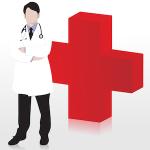There are two kinds of cholesterol, HDL (the "good" kind) and LDL (the "bad" kind).
statins
A few years ago we profiled a meta-analysis in The Lancet that supported the notion that even healthy adults could benefit from taking statin drugs (which lower L
By now, everyone concerned about cholesterol and heart disease knows about statins — the family of drugs that can effectively lower blood cholesterol levels, especially the levels of so-called bad cholesterol, the LDLs.
Heart disease via Shutterstock
In 2013, a combined pan
The European Society of Anesthesiologists is m





